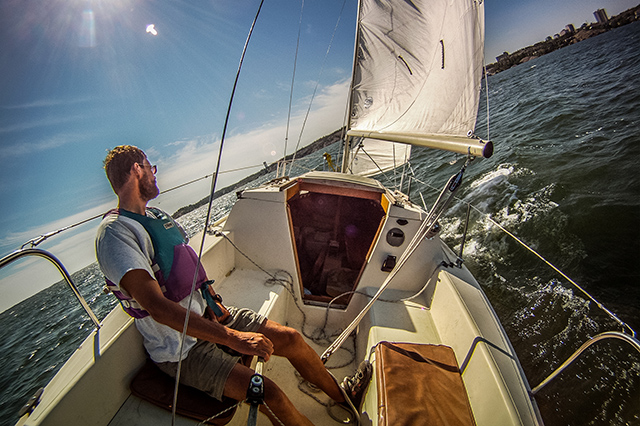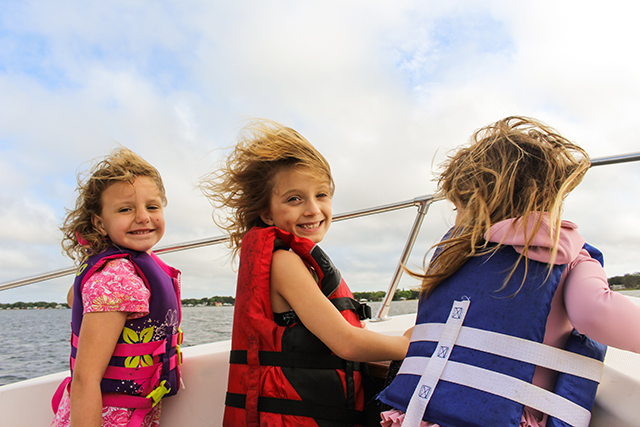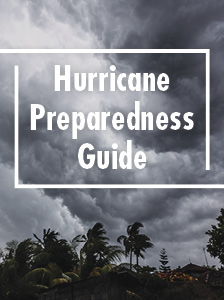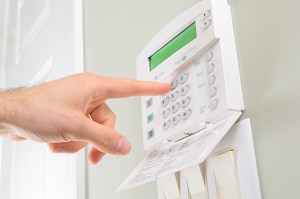Whether you enjoy fishing, sailing, traveling by water or days on the deck with family and friends, there’s no doubt that having a watercraft is a lot of fun, and a lot of responsibility.
Like motorcycles and RVs, all grownup “toys” have their fair share of risks to account for and maintenance to uphold. Boat owners have to think about things like docking and storage, cleaning, navigation and equipment, as well as the overall safety of everyone on board and other boaters.
Here in the Northeast where the water is a quintessential part of life and summer, it seems like everyone either has a boat or knows someone who does. If you’re a seafaring lover that daydreams of the water whenever you’re not on it, or if a watercraft is on your wish list, here are some boat safety tips and insurance considerations to keep in mind.
To explore your boat insurance options or get a quote, schedule an appointment with a AAA Insurance agent.
Boat Safety Tips
From 2018-2022 there were 4,049 reported recreational watercraft accidents, which included 636 deaths, 2,222 injuries and millions of dollars of property damage, according to the most recent report from the Insurance Information Institute and the U.S. Coast Guard. In the Northeast, New York is among the top 10 states for watercraft accidents.
Part of being a boat owner is making sure that you, and everyone you invite onto your vessel, are following safety protocol. The next time you are out on the water, remember these tips.
Life Jackets Save Lives
In 2022, 75% of fatal water accident victims died by drowning, and of those, 85% were not wearing a life jacket. The U.S. Coast Guard requires a Coast Guard-approved life jacket for each person aboard a recreational vessel. Boats larger than 16 feet also need at least one throwable personal flotation device.
Children’s life jacket requirements vary by state; in states where there is no law in place, the Coast Guard requires children under 13 to wear an approved life jacket on moving boats.
While life jackets are especially encouraged in dangerous conditions like rough waters and severe weather, half of all recreational boating fatalities happen in calm water, according to the Coast Guard. Your safest bet is always to wear a life jacket whenever you are on or around water.
Don’t Drink and Drive Your Boat
When combined with typical watercraft conditions such as motion, vibration, sun, wind and spray, alcohol can impair a person’s abilities faster on water than on land, according to the U.S. Coast Guard. Coast Guard numbers show alcohol was a contributing factor in 16% of recreational watercraft deaths in 2022.
Boater Safety
Operator inexperience was a primary contributing factor in 69 recreational watercraft deaths in 2022. Along with knowing the basics, you should also be well-equipped to handle difficult weather and emergency situations. Boater education laws are mandated in all local states for boat operators, but you can brush up on boating safety at any time with one of the many courses available. As an added incentive, completing a boater safety course could earn you a discount with some specialty watercraft insurers.
Pay Attention
Similar to when you are driving, distraction can be deadly when operating a boat. Operator inattention accounted for 45 deaths in 2022. Keep your attention on the task at hand.
Check Your Vessel
Schedule a Vessel Safety Check with a certified examiner from the Coast Guard or United States Power Squadrons at any time to make sure your boat is in tip-top condition.

Boat Insurance
Is boat insurance necessary?
In many cases, like if you are leasing or financing the vessel or if a marina requests it, proof of insurance is required. The real question is whether you should get a policy specifically for your boat or stick with the coverage your homeowners insurance can provide.
While some insurance carriers provide limited coverage for boats of a certain length or horsepower on your homeowners policy, a specialized boat insurance policy is highly recommended because it can provide broader coverage and options for customization.
With specialty insurance, in addition to choosing from a list of standard options including liability, physical damage, and total loss replacement, you can also add boat-specific needs, such as:
- Coverage for fishing equipment.
- On-water assistance and towing.
- Personal property replacement.
- In some cases, water sports coverages.
Let AAA Insurance help you find a boat insurance policy that’s right for you.
Need a tow? AAA members can save on Sea Tow memberships.
What do you love most about having a boat? Tell us in the comments.
















